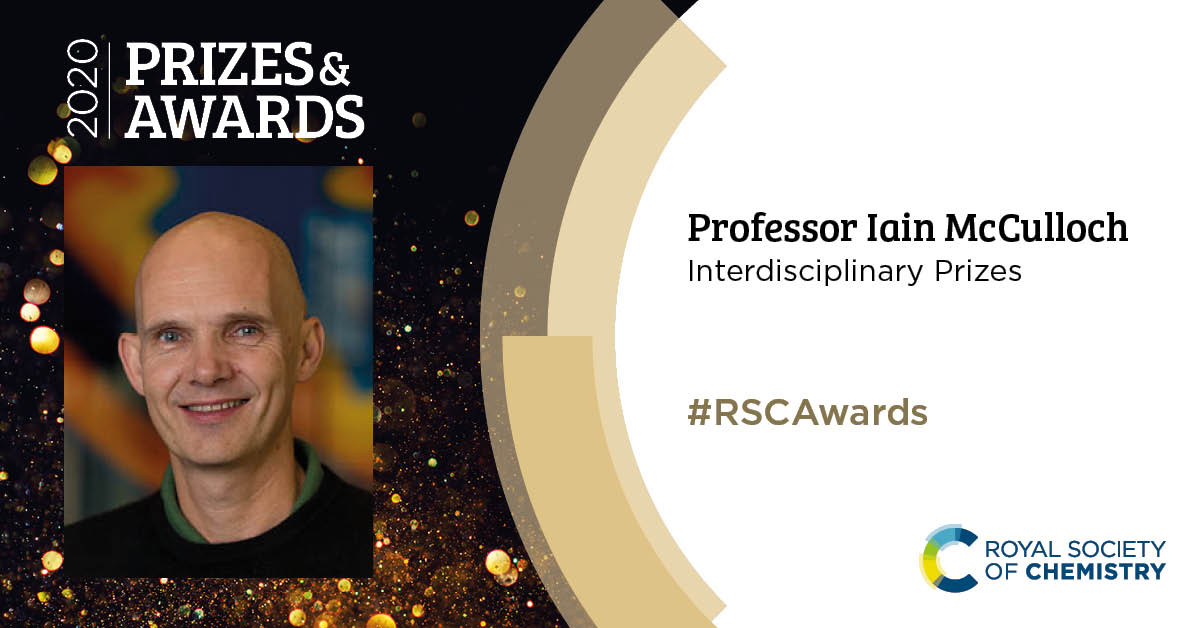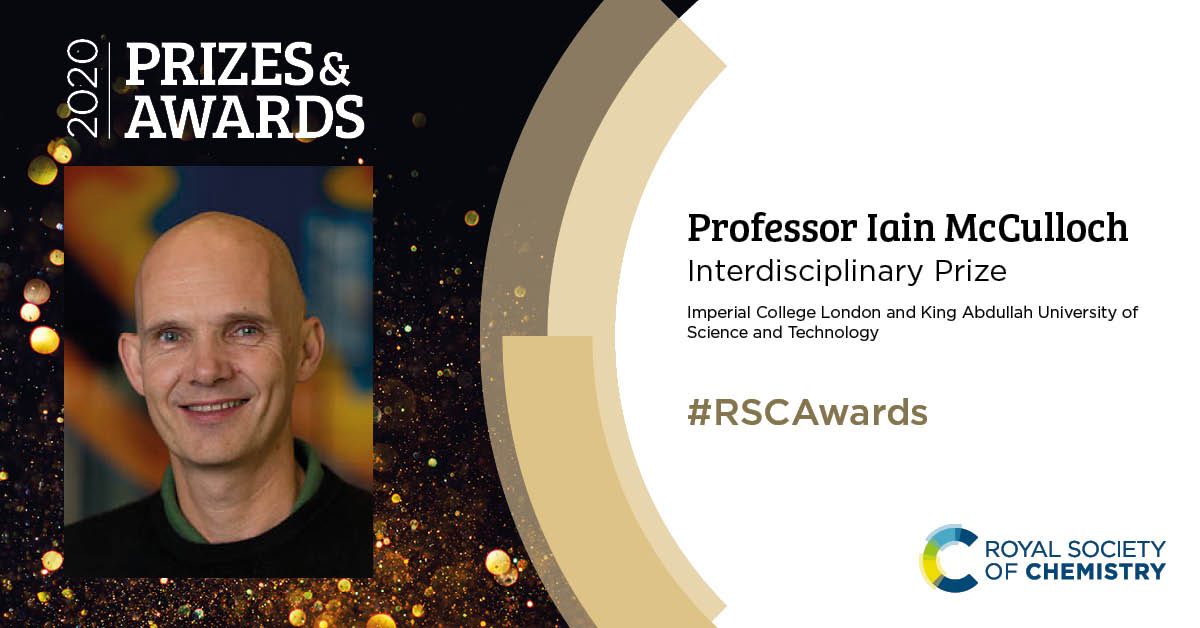Professor Iain McCulloch wins Royal Society of Chemistry Award

Iain McCulloch, director of the KAUST Solar Center, and Professor of Chemical Science at KAUST.

Iain McCulloch, director of the KAUST Solar Center, and Professor of Chemical Science at KAUST.
Glasgow-born Professor Iain McCulloch has been named the winner of the Royal Society of Chemistry's Interdisciplinary Prize.
Based at KAUST and Imperial College London, McCulloch won the award for advances in the design, synthesis and innovative application of functional materials in optics, electronics and energy. McCulloch is the director of the KAUST Solar Center, and a Professor of Chemical Science. He is also Chair in Polymer Materials and a Professor in the Department of Chemistry at Imperial College, London.
"It is a huge honor to be awarded the Royal Society of Chemistry Interdisciplinary Prize," McCulloch said. "My research relies on having excellent, and patient, collaborators, as well as having group members who are comfortable to extend their expertise into areas beyond their educational background and comfort zones. At these murky boundaries, most of the interesting discoveries are made."
His work has focused on using chemical molecular design and synthesis to create new organic materials capable for use in optics, electronics and sensors. These materials have specific functionality that can facilitate light absorption to enable new flexible solar cells, for example.
Important contributions
"We live in an era of tremendous global challenges, with the need for science recognized now more so than ever – so it is important to recognize those behind the scenes who are making significant contributions towards improving the world we live in," said Dr. Helen Pain, acting chief executive of the Royal Society of Chemistry. "It is our honor and privilege to do that with these awards, which recognize exceptional scientific achievement.
"The global chemical sciences community is one that covers many different specialisms, from health and climate change to product development, sustainable transport, and everything in between. In recognizing the work of Professor McCulloch, we are also recognizing the important contribution this incredible network of scientists makes to improving our lives every day."
The Royal Society of Chemistry's prizes and awards are awarded in recognition of originality and impact of research, or for each winner's contribution to the chemical sciences industry or education. They also acknowledge the importance of teamwork across the chemical sciences, as well as the abilities of individuals to develop successful collaborations.
Of those to have won a Royal Society of Chemistry Award, an illustrious list of 50 have gone on to win Nobel Prizes for their pioneering work, including 2016 Nobel laureates Jean-Pierre Sauvage, Fraser Stoddart and Ben Feringa.
Related stories
- McCulloch elected Royal Society Fellow
- Forecasting solar radiation in the Kingdom
-
KAUST and ARMOR collaborate on next generation solar tech

